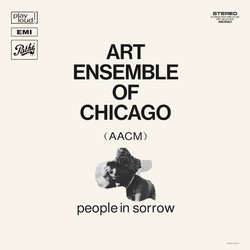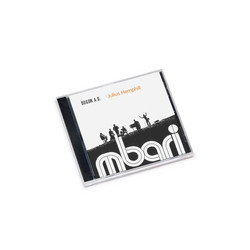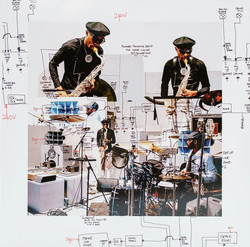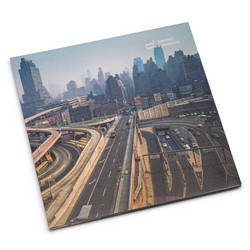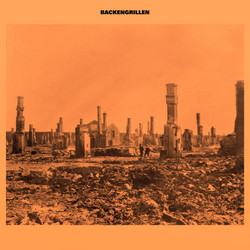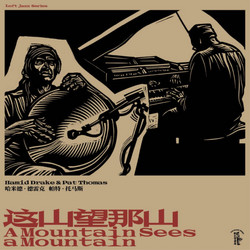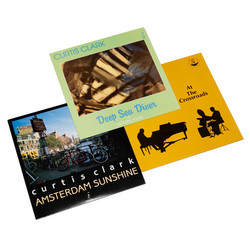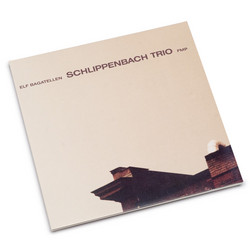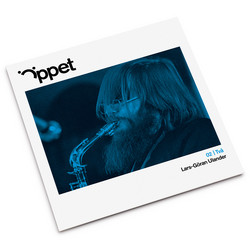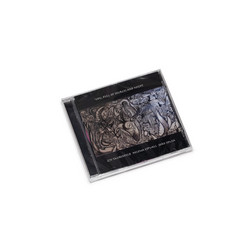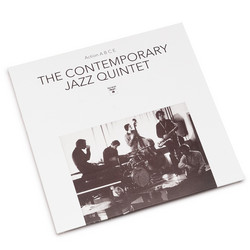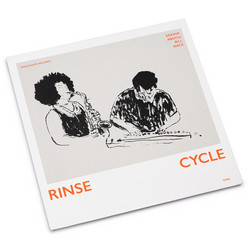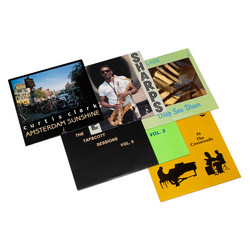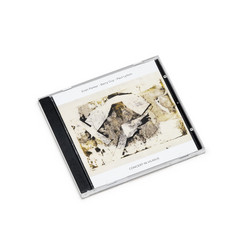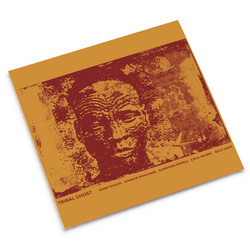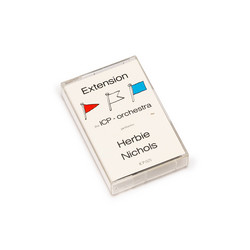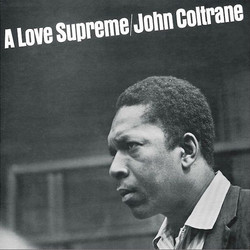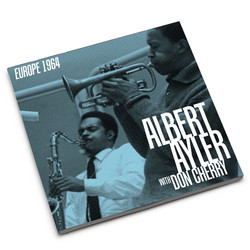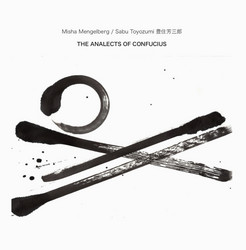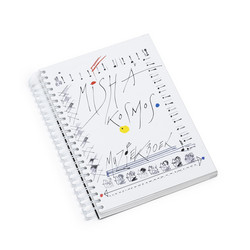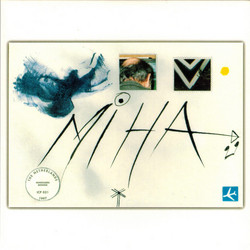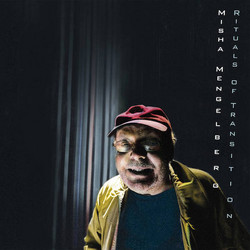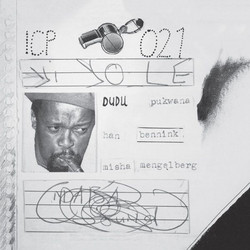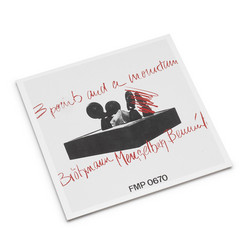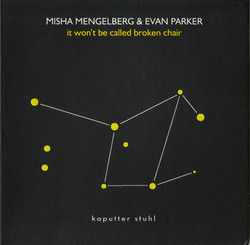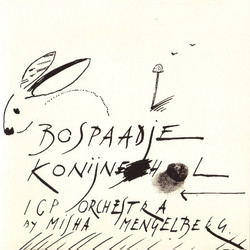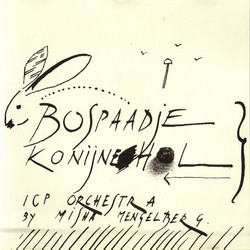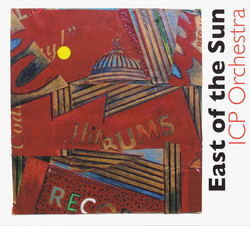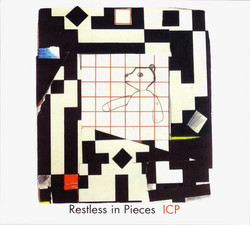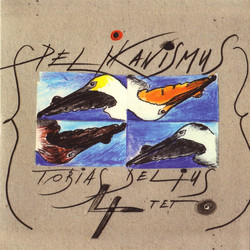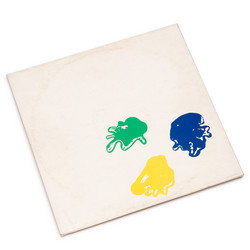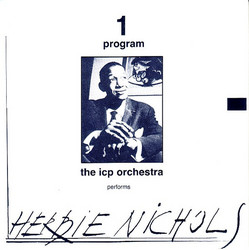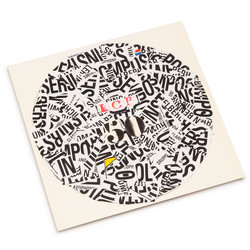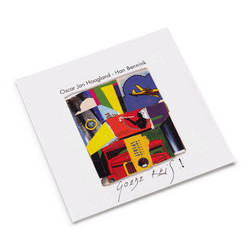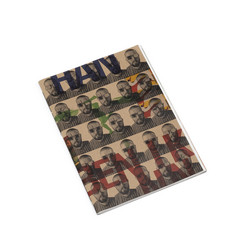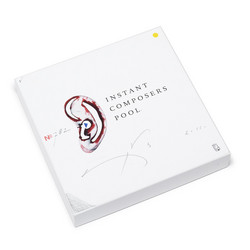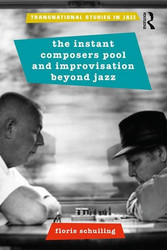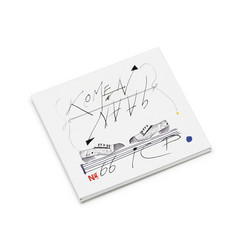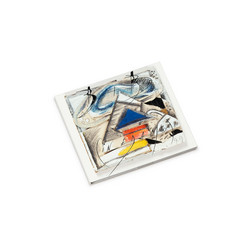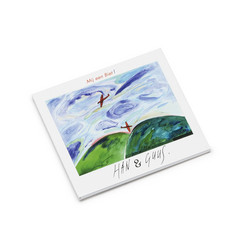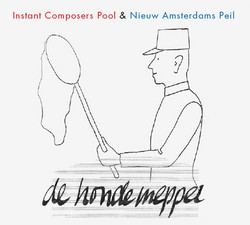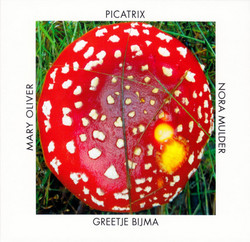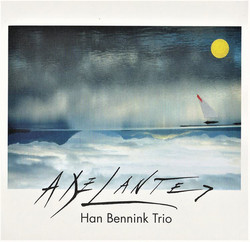Misha Mengelberg
Pech Onderweg (LP)
There is no doubt that Misha Mengelberg was an excellent, even a great, jazz pianist. He was already close to that when he recorded with Eric Dolphy at the end of the latter’s career and he certainly was there by the mid ‘60s, when he was leading a quartet with alto saxophonist Piet Noordijk and drummer Han Bennink. But Mengelberg, like Bennink, was a musical maverick rarely content as a performer to play ‘just’ jazz and this is reflected on the solo record Pech Onderweg, recorded 40 years ago and now reissued on vinyl. Originally released on BVHAAST in 1979, the album is a half-hour sifting of jazz history and its intersections with classical harmony, all viewed through the cracked frame of a master troublemaker " The English translation of this album title is "trouble on the road," and this seems to be the theme of the first two performances on this collection of solo piano pieces. Superficially it may seem a bit too easy for a musician known for avant-garde playing to approach this subject. Whatever the trouble on the road might be, surely more than a few avant-garde clichés spring to mind for a musical equivalent. Yet there are no clichés in Misha Mengelberg's piano playing, other than his own, the main one of which is to stop playing and smoke a cigarette.
Whatever image this attitude might create of a lax, uninvolved player would be forever dispelled by the first of the "Pech Onderweg" portraits, in which a totally concentrated Mengelberg unleashes a performance that seems to taunt the listeners with aspects of so many different kinds of piano music, at the same time carefully developing and filing each for later use, perhaps in this piece or perhaps in the next century. The second of these road hazard performances is more of the same, plus this time he skillfully weaves a boogie woogie theme in and out. This wets the appetite for "Wie Jeuk Heeft, Als Moet Men," something do with scratching and itching, in which the pianist comes up with a fascinating probe of jazz piano, particularly the Thelonious Monk style. The balance of the record continues with superior performances -- it can truly be said this pianist was on the case for this, unbelievably a live performance at the Bim Huis in Amsterdam.
The "Suite Banana" on the second side is where this artist's perverse humor forms a lather around the keyboard, although he also hams it up on the "Raspodie Soliee Bref," expertly mixing in moments of sincere sentimentality. While fans of Mengelberg must enjoy the comic side of his talent, complete with extemporized percussion, mouth noises, and drunken-sounding singing, this time around there is also a sense of deep gratitude for such a solid, personal, and emotionally captivating performance having preceded it. " Eugene Chadbourne
